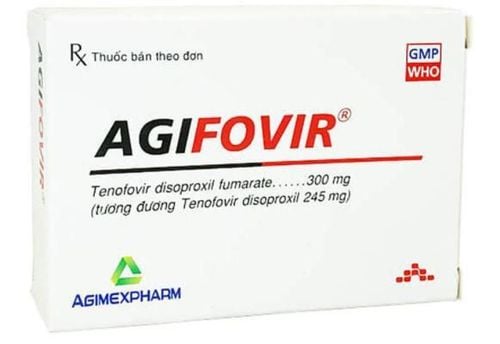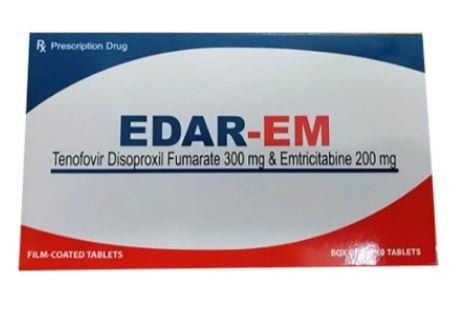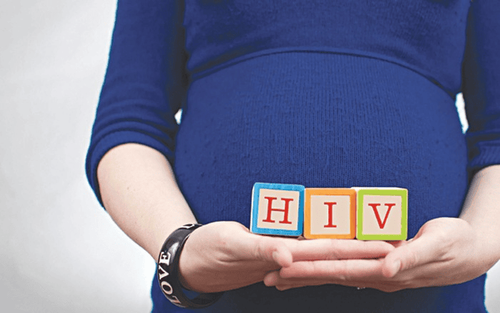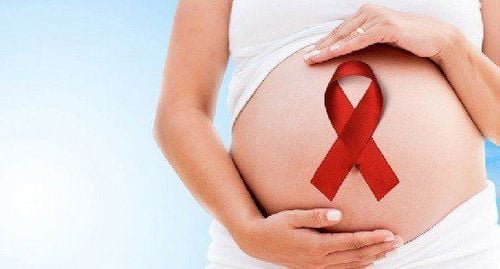This is an automatically translated article.
Pregnancy is a journey full of difficulties, challenges but also extremely happy. For mothers who are unfortunately infected with HIV, that journey is even more difficult with many worries from health to baby's future.
1. What are the risks of HIV-infected pregnant women?
For maternal health: A pregnant mother infected with HIV has a high risk of infection. In addition, pregnant women are also prone to pregnancy complications such as labor before the due date, high blood pressure, diabetes,...
For the health of the baby: HIV-infected mothers can infect HIV virus to the child. Besides, infections that the mother has can also pass to the baby and threaten the baby's life. Not only that, all functions on the baby's body can be affected.
2. What should a pregnant woman do when she is found to have HIV?
When HIV infection in pregnant women is suspected, all pregnant women should go to health facilities for HIV examination and counseling as soon as possible (preferably in the first 3 months). If the disease is detected and taken according to the treatment regimen early, pregnant women can ensure optimal effectiveness in reducing the rate of HIV transmission from mother to child. In case a pregnant mother is infected with HIV and wants to become pregnant, she should ensure good health before becoming pregnant. If a woman becomes pregnant with HIV and has not been on ART, she should consult with her doctor about the appropriate time for prophylactic treatment to prevent HIV transmission to her baby. If you are on ART for pregnant women, you should see your doctor early to discuss medications you can take during pregnancy. Depending on the time of determining HIV-positive at what stage of pregnancy, doctors will have appropriate prophylactic indications and the use of antiretroviral drugs will be carried out according to a separate regimen. During labor, it is necessary to minimize the trauma to the pregnant woman and the child: to ensure absolute sterility during delivery, not to cut the amniotic membrane early, to limit interventions that cause genital bleeding during labor. birth, avoid intervention procedures that can cause skin damage to the fetus, etc. After giving birth, it is best to feed your baby with formula milk to replace breast milk to avoid the risk of HIV transmission from breast milk. Make sure your baby is tested for HIV early at 4-6 weeks of age. If your baby is diagnosed with HIV, both mother and baby should take prescribed HIV medications.
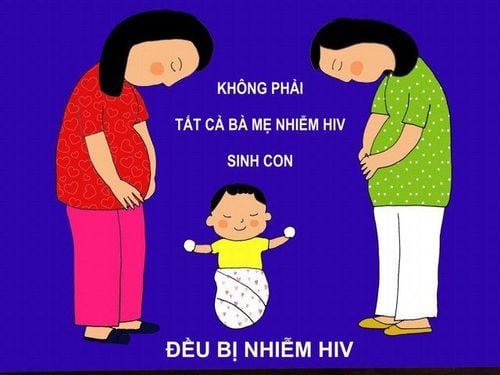
Phụ nữ mang thai bị nhiễm HIV
3. Taking care of HIV-positive mothers right after giving birth
Doctors and nurses prevent bleeding that causes infection for HIV-infected women and prevent HIV transmission to the delivery team and the community. If pregnant women were on antiretroviral therapy before, they should continue to do so after giving birth. If no treatment, start the treatment regimen. Counseling, transfer to facilities or centers for HIV care and treatment. At the same time, support the best treatment. Counseling mothers on how to raise children safely and prevent HIV transmission to their children. Besides, pregnant mothers are infected with HIV right after giving birth, the care is similar to other obstetric cases. Specifically:
After giving birth, the mother has to eat many meals, eat a lot of energy-rich foods, eat a balanced diet with enough nutrients to fight diseases... Besides, after giving birth, the mother needs to pay attention to hygiene. Oral hygiene to prevent dental and oral diseases. Early exercise can promote the body's recovery, help blood circulation, beneficial for contraction and return to the original position of the uterus, bringing blood out, thereby reducing the possibility of infection. and opportunistic infections (the most common feature in HIV disease). A few days after giving birth, the pregnant woman feels that her whole body is sticky due to sweat, feels uncomfortable, is a favorable environment for disease-causing bacteria, at this time, take a quick shower, but only standing showers should not be bathed. tub. Nails that grow long can contain a lot of dirt and bacteria. When taking care of a child, it is possible to accidentally scratch the baby's skin, causing skin infection and especially HIV virus that can enter the child's body. Therefore, mothers and caregivers of babies need to regularly trim their nails and keep their hands clean. Ventilation in the room is really important and necessary. It is necessary to keep fresh air in the room, minimizing the proliferation of bacteria.

Bà mẹ có HIV ngay sau khi sinh con cần được chăm sóc đặc biệt
4. Notes for caregivers of HIV-infected pregnant women
In the process of taking care of an HIV-infected pregnant woman, the doctor and the patient's family should note the following:
Let the mother use some personal items separately such as: face towel, bath towel, toothbrush, etc. tongue scrapers, nail clippers, needles... Wear rubber gloves when caring for open wounds for pregnant women, avoid direct contact because there is a high possibility of HIV infection. Tools such as towels, clothes... that have been stained with the blood of an HIV-infected woman should be soaked in Javen water (0.1 - 0.5%) for 30 minutes before washing again with soap. When contaminated with blood or secretions of an HIV-infected mother, caregivers should immediately wash their hands with soap and disinfect with alcohol. After treatment, relatives of pregnant women infected with HIV should contact a specialized medical center for instructions on measures to prevent infection. For garbage with blood, secretions such as toilet paper, cotton, needles, bandages, etc., it is necessary to put it in a plastic bag twice, tie it up before putting it in the trash. In addition, relatives of HIV-infected pregnant women should also work with sanitation workers and garbage collectors so that they can separate these medical waste from normal garbage, avoiding the risk of HIV transmission to the community. In addition, caregivers of pregnant women infected with HIV need to keep the patient's psychology stable because psychological trauma can adversely affect the patient's health. To register for examination and treatment at Vinmec International General Hospital, you can contact Vinmec Health System nationwide, or register for an online examination HERE
MORE:
Pregnancy in HIV-infected women /AIDS: What you need to know about HIV testing and treatment in pregnant women: What you need to know Preventing mother-to-child HIV transmission When does an HIV test give the most accurate results?






